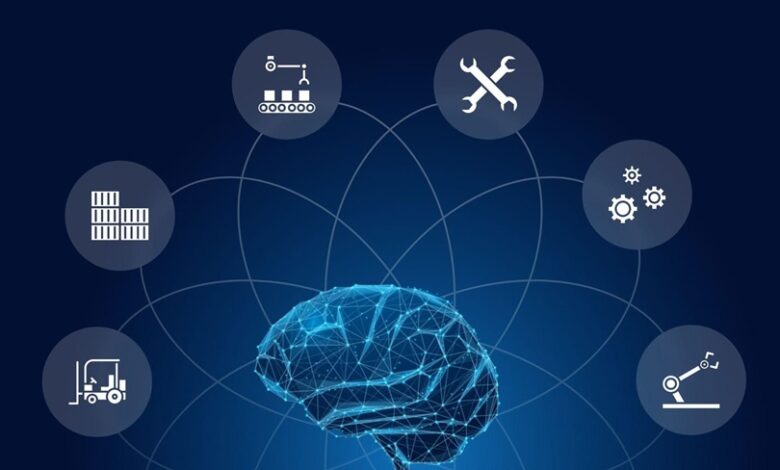The GenAI Platform for Manufacturing: Driving Innovation and Efficiency

The manufacturing industry is at the cusp of a digital transformation, driven by the integration of advanced technologies such as artificial intelligence (AI). Among these, Generative AI (GenAI) is emerging as a game-changer, offering unprecedented opportunities to enhance efficiency, innovation, and productivity. The GenAI Platform for Manufacturing is designed to leverage the capabilities of generative AI to revolutionize various aspects of manufacturing, from design and production to quality control and supply chain management. This article delves into how generative AI is transforming manufacturing and the specific benefits it brings through the GenAI platform.
What is Generative AI?
Generative AI refers to a subset of AI that can generate new content, designs, or solutions based on input data. Unlike traditional AI, which follows predefined rules, generative AI uses advanced algorithms, including neural networks and machine learning models, to create novel outputs that can be highly creative and efficient. In manufacturing, this technology can be applied to generate optimized designs, predict maintenance needs, and streamline production processes.
Key Features of the GenAI Platform for Manufacturing
1. Design Optimization
The GenAI Platform for Manufacturing excels in creating optimized designs for products and components. By analyzing vast amounts of data, including material properties, usage patterns, and environmental conditions, the platform can generate designs that maximize performance, reduce material usage, and minimize production costs. This capability accelerates the product development cycle and leads to innovative solutions that might not be achievable through traditional methods.
2. Predictive Maintenance
Maintenance is a critical aspect of manufacturing that ensures the smooth operation of machinery and equipment. The GenAI platform uses predictive analytics to forecast when a machine is likely to fail or require maintenance. By analyzing historical data and real-time sensor inputs, it can predict issues before they occur, allowing for proactive maintenance scheduling. This reduces downtime, extends the lifespan of equipment, and enhances overall efficiency.
3. Quality Control and Defect Detection
Ensuring product quality is paramount in manufacturing. The GenAI platform employs advanced image recognition and machine learning techniques to detect defects and anomalies in products during the production process. This real-time quality control helps in identifying issues early, reducing waste, and ensuring that only high-quality products reach the market.
4. Supply Chain Optimization
The GenAI platform can also optimize supply chain operations by predicting demand, managing inventory levels, and identifying the most efficient logistics routes. By analyzing market trends, historical sales data, and external factors such as economic conditions and weather patterns, the platform provides actionable insights that help manufacturers reduce costs and improve delivery times.
Benefits of GenAI in Manufacturing
1. Enhanced Innovation
Generative AI fosters innovation by enabling the creation of unique designs and solutions that were previously unimaginable. This ability to push the boundaries of conventional design leads to the development of cutting-edge products and technologies.
2. Increased Efficiency
By automating complex tasks such as design, maintenance, and quality control, the GenAI platform significantly boosts operational efficiency. This automation reduces the need for manual intervention, lowers error rates, and speeds up production timelines.
3. Cost Reduction
Generative AI helps in identifying cost-saving opportunities across various stages of manufacturing. From reducing material wastage through optimized designs to minimizing downtime with predictive maintenance, the platform contributes to substantial cost savings.
4. Improved Product Quality
With its advanced defect detection capabilities, the GenAI platform ensures that only high-quality products are produced. This focus on quality not only enhances customer satisfaction but also reduces the costs associated with returns and rework.
Real-World Applications of GenAI in Manufacturing
1. Automotive Industry
In the automotive sector, the GenAI platform is used to design lightweight yet strong vehicle components, improving fuel efficiency and performance. It also predicts maintenance needs for factory machinery, reducing downtime and increasing production rates.
2. Aerospace Industry
Aerospace manufacturers use generative AI to design components that meet stringent safety and performance standards. The technology helps in creating optimized structures that are both lightweight and durable, essential for aerospace applications.
3. Consumer Electronics
Generative AI aids in the design of compact and efficient electronic components. By optimizing circuit layouts and component placement, the GenAI platform enhances the performance and reliability of consumer electronics products.
4. Pharmaceutical Manufacturing
In pharmaceuticals, the GenAI platform is used to optimize the design and production of medical devices and packaging. It also helps in predicting equipment maintenance needs, ensuring consistent quality and compliance with regulatory standards.
Conclusion
The GenAI Platform for Manufacturing is revolutionizing the manufacturing industry by introducing advanced capabilities that enhance design, maintenance, quality control, and supply chain management. By leveraging the power of generative AI, manufacturers can achieve higher levels of innovation, efficiency, and product quality, positioning themselves for success in an increasingly competitive market. As the adoption of generative AI continues to grow, its impact on manufacturing will only become more profound, driving the industry towards a smarter and more sustainable future.



